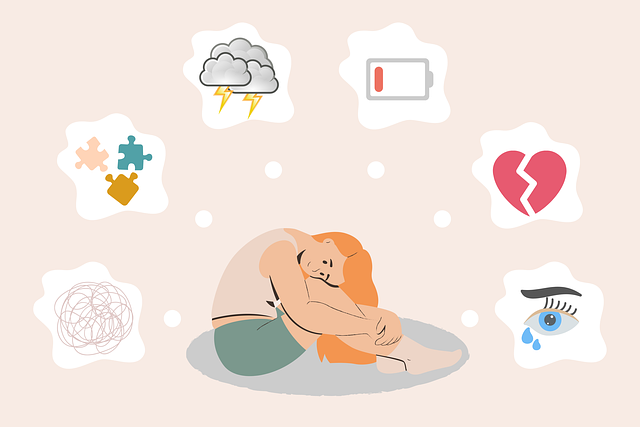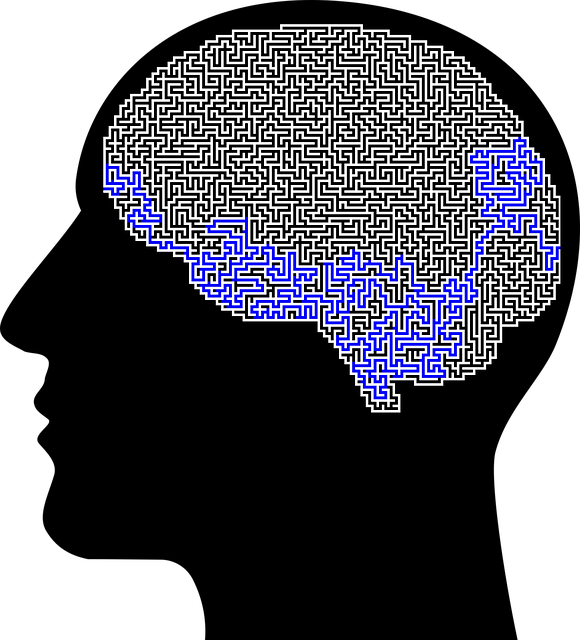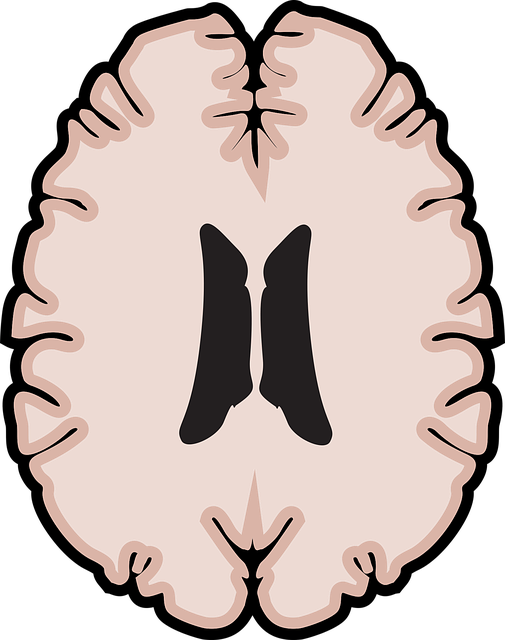Burnout is a significant concern in healthcare, impacting both professionals' well-being and patient care. Early recognition of symptoms like irritability and sleep disturbances is crucial for prevention. Wheat Ridge Online Therapy emphasizes mental health awareness among healthcare workers, advocating for emotional regulation as a key strategy. Effective communication, team support, self-care practices, and cultural competency training in platforms like Wheat Ridge Online Therapy are vital to combat burnout, ensuring healthcare providers remain resilient and dedicated in their roles.
Healthcare provider burnout is a growing concern, impacting not only individuals but also patient care. This article explores comprehensive strategies to prevent burnout, focusing on early recognition of signs and symptoms. We delve into creating supportive work environments, emphasizing the benefits of Wheat Ridge Online Therapy for mental well-being. Personal self-care practices are highlighted as empowering tools, while effective communication and team collaboration techniques round out our discussion.
- Recognizing Burnout: Early Signs and Symptoms in Healthcare Providers
- Creating a Supportive Work Environment: Strategies for Wheat Ridge Online Therapy
- Personal Self-Care Practices: Empowering Healthcare Professionals
- Implementing Effective Communication and Team Collaboration Techniques
Recognizing Burnout: Early Signs and Symptoms in Healthcare Providers

Burnout is a significant concern within the healthcare industry, impacting both professionals’ well-being and patient care quality. Recognizing burnout at an early stage is crucial for effective prevention strategies. Healthcare providers often exhibit subtle signs and symptoms that can be easily overlooked but are critical indicators of mounting stress and emotional exhaustion. These may include increased irritability or frustration with patients, colleagues, or tasks previously found rewarding; decreased energy levels leading to difficulty in completing routine duties; and changes in sleep patterns, often characterized by insomnia or restless sleep.
Wheat Ridge Online Therapy emphasizes the importance of Mental Health Awareness among healthcare workers, promoting open discussions around Emotional Regulation as a key strategy for burnout prevention. By recognizing these early signs, providers can take proactive steps towards better mental wellness. This may involve seeking support from colleagues, utilizing available resources, or turning to specialized services like online therapy platforms, ensuring a holistic approach to maintaining emotional balance and overall well-being in the demanding healthcare environment.
Creating a Supportive Work Environment: Strategies for Wheat Ridge Online Therapy

Creating a supportive work environment is paramount for preventing burnout among healthcare providers, especially those offering Wheat Ridge Online Therapy. Effective communication strategies and emotional intelligence play a pivotal role in fostering this. Therapists can build strong connections with clients virtually by actively listening, validating their feelings, and maintaining open dialogue. This not only enhances the therapeutic experience but also reduces the emotional burden on practitioners.
Additionally, incorporating confidence-boosting activities within the Wheat Ridge Online Therapy platform can significantly contribute to burnout prevention. Regular virtual team meetings, peer support groups, and opportunities for professional development can all instill a sense of community and empowerment. These initiatives, combined with clear boundaries and realistic caseloads, create an environment conducive to resilience and well-being among healthcare providers.
Personal Self-Care Practices: Empowering Healthcare Professionals

Healthcare provider burnout is a growing concern, but empowering professionals with effective personal self-care practices can be a game-changer. Incorporating regular mental wellness routines, such as mindfulness exercises and Wheat Ridge Online Therapy, allows healthcare workers to manage stress levels and maintain resilience. These practices not only enhance their ability to provide quality care but also foster a sense of balance and well-being.
Mentoring programs focused on burnout prevention, including Mental Wellness Coaching, can further support professionals. Such initiatives encourage open dialogue about challenges, promote self-reflection, and offer strategies for stress management. By prioritizing personal Self-Care Practices, healthcare providers can prevent burnout, ensuring they are equipped to navigate the demanding nature of their roles with sustained energy and commitment.
Implementing Effective Communication and Team Collaboration Techniques

In healthcare, effective communication and team collaboration are essential tools to prevent provider burnout. By fostering open dialogue and clear information exchange, mental health professionals can reduce misunderstandings and errors, leading to improved patient outcomes. This is particularly relevant in the context of Wheat Ridge Online Therapy, where virtual interactions necessitate robust communication skills to bridge the digital gap. Encouraging regular check-ins, active listening, and a culture of support among colleagues can create a more positive work environment.
Additionally, integrating Healthcare Provider Cultural Competency Training into routine practices enhances understanding and sensitivity to diverse patient populations. Risk Management Planning for Mental Health Professionals is another crucial strategy, ensuring practitioners have the tools to navigate challenging situations safely and effectively. Even simple practices like Mental Wellness Journaling Exercises can help providers reflect on their experiences, manage stress, and maintain a healthy work-life balance, ultimately contributing to lower burnout rates.
Burnout among healthcare providers is a pressing issue, but with the right strategies, it can be effectively mitigated. By recognizing early signs of burnout, creating supportive work environments enhanced by practices like Wheat Ridge Online Therapy, adopting personal self-care routines, and improving communication and team collaboration, professionals in the healthcare sector can foster a healthier, more sustainable career. These strategies not only benefit individual providers but also contribute to improved patient care and organizational resilience.














